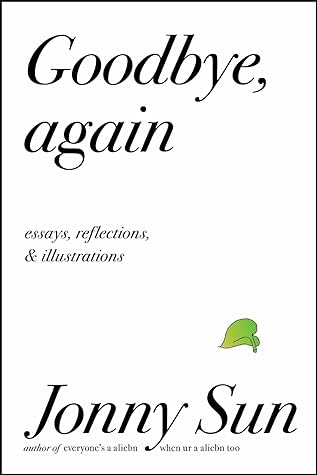More on this book
Community
Kindle Notes & Highlights
The most productive years of my life so far have also been my loneliest.
When I stay at a friend’s place, the space between saying good night and good morning is an unfamiliar type of quiet. I think it’s because it’s not my own quiet that I feel in this space, but theirs. On the couch, or the air mattress, or in the guest room, in the dark, it feels like I am borrowing the ordinary quietness they feel every day. I am borrowing their sadnesses, their lonely and still moments, their pauses.
Who or what is influencing my thinking on what friendship “should” look like, anyway? Where did I learn that from, and why do I give that authority over my own experiences?
Instead, what I can only seem to remember is the anxiety and worry I felt during those moments. The happiness comes much later—it is what comes now, years and years after, when I can convince myself that I can finally, safely feel happy about those moments because all those worries and anxieties did not seem to bear any fruit. The good thing that was Really Happening didn’t fall to pieces or get taken away from me or get crossed out by something I did or something bad happening the following day, or the following month, or in the following years. The memory is still standing. The good thing
...more
HOW TO COOK A TEA EGG Egg Tea (?) Remember, for a brief second, how you used to eat tea eggs as a child. Forget. Go about your day.
We cannot seem to escape the desire to feel productive with our time. I’m not sure if that’s by choice or by trauma, that this pressure to produce has been so engrained in us that our deepest fantasies are still tied to some idea of working on something.
And suddenly, I don’t feel so strange and alone. There is a comfort in this, in realizing that someone else at some point in time had really cared about the same thing that you do right now,
Being spoken over and interrupted in most conversations I have been in for most of my life has, I like to think, made me considerate of how much time each person takes (or takes up) in a conversation. I prefer to talk very little. When it’s with someone I care about, I love listening, and I always feel that listening is a better way than talking for me to express my love. When it’s a group conversation, though, I speak very little mainly just from being spoken over all the time. When I realize that the person talking doesn’t care about hearing from anyone else, I like to tune out and play the
...more
One thing that makes me really adore someone is seeing that they also use listening as a way to convey love.
In order to do the things I want to do, in order to go about my life, or to get anything done, I just need to pay the anxiety tax first. The tension and soreness I feel in my shoulders that never goes away; the hour of preparation it takes for me to talk myself into leaving the house; the constant fear that I will say the wrongest thing or write the wrongest thing or do the wrongest thing without even knowing it—these are all part of the tax.
To the plants, though, we must be exhausting. Being around any plants at all makes me imagine them witnessing me moving around all the time, a fast-forwarded blur of sitting, standing, sitting, laying down, sitting, standing, sitting, standing, sitting, until the plant gives up, sighing, burned-out, Enough with this guy already. Stop moving around so much. Just sit still for a couple weeks. Please.
And as I would walk away, I would play out the conversation over and over in my head to figure out what had brought us to this point that I had not prepared for, and I would try to figure out what I should have said in the moment, coming up with a new list of things to say so I wouldn’t be caught off guard if this topic ever came up again. It felt like I had a problem with processing time—that on the spot, I couldn’t think fast enough, I didn’t have time to safely plan out what I wanted to say before I could say it, and I would panic and say nothing at all, or stumble to get any coherent words
...more
It’s in the moments of happiness where I feel the most vulnerable to thoughts of sadness and of hopelessness.
But I am trying to tell myself more that happiness has to be temporary for it to exist. If it lasted forever, we wouldn’t know to call it anything.
I have started to let sadnesses visit whenever they come, because I know that trying to keep them out will just cause them to find another, more aggressive way in. And when they visit, I try to sit with them, and understand the different nuances between these visitors, to take stock of them and note how each of them makes me feel.
Standing in my old bedroom feels uncanny, just a little bit like standing in the apartment below mine. Only instead of having stepped into a hallway on the wrong floor, I am standing in my home in the wrong time. I suppose sometimes the things in the room don’t need to be different for a place to feel unfamiliar. Sometimes you are the thing that has changed.


